
Koungou: Mayotte's Hidden Gem
Koungou, nestled on the island of Mayotte, offers a unique blend of natural beauty and cultural richness. This small town is a gateway to pristine beaches, lush landscapes, and a vibrant local culture that is sure to enchant any traveler. Koungou is less crowded than other tourist destinations, allowing visitors to enjoy the serene environment and warm hospitality of the locals. One of the highlights of visiting Koungou is exploring its stunning coastline. The beaches here are perfect for swimming, snorkeling, and sunbathing. The clear waters provide excellent visibility for underwater adventures, revealing a diverse marine life that includes colorful fish and coral reefs. For those who prefer land-based activities, the nearby hiking trails offer breathtaking views of the island's natural beauty. Culturally, Koungou is a melting pot of influences, with a rich history that reflects the island's African, French, and Arabic heritage. Visitors can explore local markets, where they can buy handmade crafts, fresh produce, and sample delicious local cuisine. The town also hosts various cultural events throughout the year, giving tourists a chance to experience traditional music, dance, and festivals. Koungou's charm lies in its simplicity and authenticity. It is a place where visitors can unwind, explore, and connect with the local way of life. Whether you are an adventure seeker, a culture enthusiast, or simply looking for a peaceful retreat, Koungou offers something for everyone.
Local tips in Koungou
- Currency: Mayotte uses the Euro. Make sure to have cash, as some small shops might not accept cards.
- Language: French is the official language. Learning a few basic phrases can be helpful.
- Best Time to Visit: The dry season from May to October is ideal for outdoor activities and exploring.
- Local Cuisine: Don't miss out on tasting 'Mataba' and 'M'tsolola,' traditional dishes made from local ingredients.
- Transport: Renting a car is the best way to explore the island, as public transport is limited.
- Respect Local Customs: Dress modestly, especially when visiting villages and religious sites.
Koungou: Mayotte's Hidden Gem
Koungou, nestled on the island of Mayotte, offers a unique blend of natural beauty and cultural richness. This small town is a gateway to pristine beaches, lush landscapes, and a vibrant local culture that is sure to enchant any traveler. Koungou is less crowded than other tourist destinations, allowing visitors to enjoy the serene environment and warm hospitality of the locals. One of the highlights of visiting Koungou is exploring its stunning coastline. The beaches here are perfect for swimming, snorkeling, and sunbathing. The clear waters provide excellent visibility for underwater adventures, revealing a diverse marine life that includes colorful fish and coral reefs. For those who prefer land-based activities, the nearby hiking trails offer breathtaking views of the island's natural beauty. Culturally, Koungou is a melting pot of influences, with a rich history that reflects the island's African, French, and Arabic heritage. Visitors can explore local markets, where they can buy handmade crafts, fresh produce, and sample delicious local cuisine. The town also hosts various cultural events throughout the year, giving tourists a chance to experience traditional music, dance, and festivals. Koungou's charm lies in its simplicity and authenticity. It is a place where visitors can unwind, explore, and connect with the local way of life. Whether you are an adventure seeker, a culture enthusiast, or simply looking for a peaceful retreat, Koungou offers something for everyone.
When is the best time to go to Koungou?
Iconic landmarks you can’t miss
Pointe Mahabou
Explore the stunning hiking trails of Pointe Mahabou in Mamoudzou, Mayotte, where nature's beauty and tranquility await every adventure seeker.
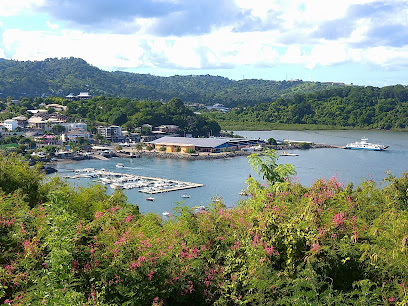
Cascade de Soulou
Experience the breathtaking beauty of Cascade de Soulou, a majestic waterfall nestled in the lush landscapes of Mayotte, perfect for nature lovers and adventure seekers.
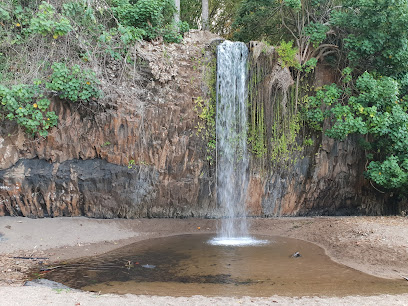
Mayotte Découverte
Discover the enchanting marine life and stunning landscapes of Mayotte with Mayotte Découverte's unforgettable boat tours and excursions.
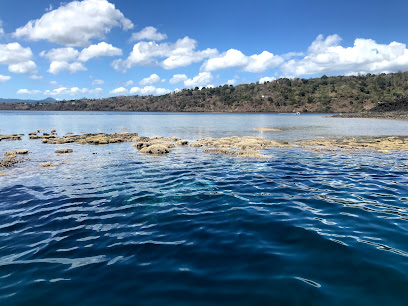
Pointe de Koungou
Discover the stunning views from Pointe de Koungou, an observation deck that offers a unique perspective of Mayotte's breathtaking landscapes.
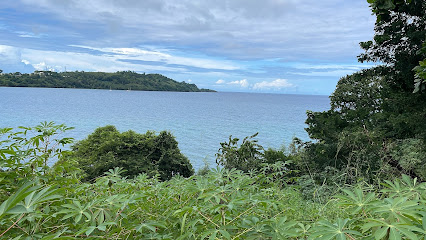
Mosquée de Koungou
Experience the cultural richness and architectural beauty of Mosquée de Koungou in Mayotte, a serene destination for spiritual reflection and exploration.
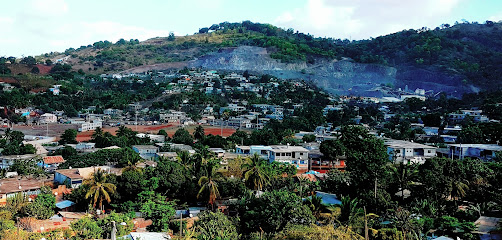
Hôtel De Ville De Koungou
Explore the heart of Koungou at Hôtel De Ville, a symbol of local governance and a reflection of Mayotte's rich cultural heritage.
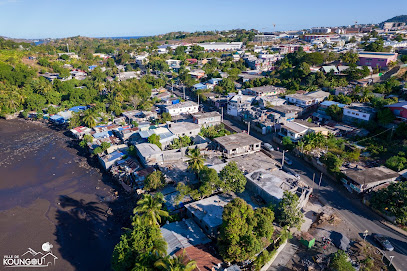
Grande mosquée Bandrajou
Explore the Grande Mosquée Bandrajou in Koungou, a serene sanctuary showcasing Mayotte's rich Islamic heritage and stunning architectural beauty.
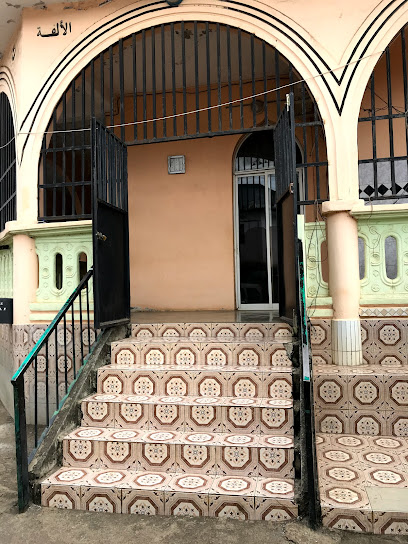
MAYOTTE
Unleash your adventurous spirit in Mayotte with thrilling off-roading experiences amidst stunning landscapes and rich cultural heritage.

Maison du Gouverneur
Explore the historical elegance of Maison du Gouverneur in Dzaoudzi, a captivating journey through Mayotte's colonial past.
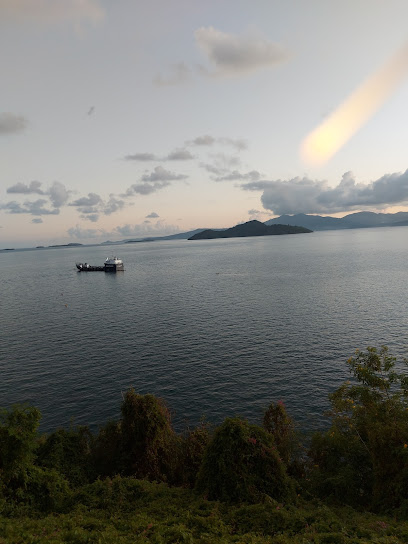
Plage de Koungou
Experience the tranquil beauty of Plage de Koungou, a hidden beach gem in Mayotte with stunning views and serene waters perfect for relaxation.
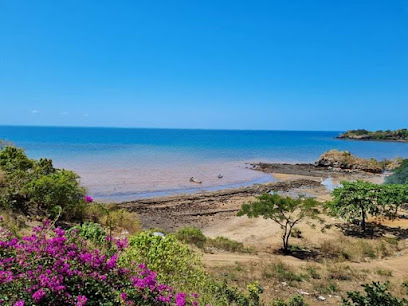
Point de vue
Discover the stunning landscapes of Mayotte at Point de Vue, a breathtaking viewpoint in Koungou that promises unforgettable scenery and tranquility.
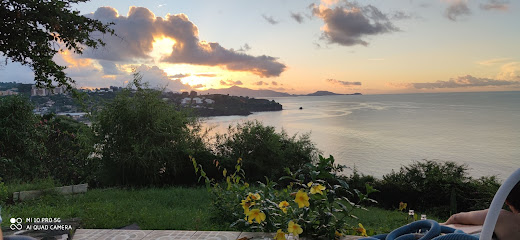
Mayotte Armature Industrie ( MAI )
Explore Mayotte Armature Industrie, a key supplier of building materials, shaping the construction landscape of Mayotte with quality and expertise.

Cemetery Koungou
Discover the serene Cemetery Koungou in Mayotte, a tranquil place of remembrance, reflection, and cultural exploration.

Parc Koungou
Discover the joy of family fun and adventure at Parc Koungou, the ultimate amusement center in Mayotte, perfect for creating unforgettable memories.
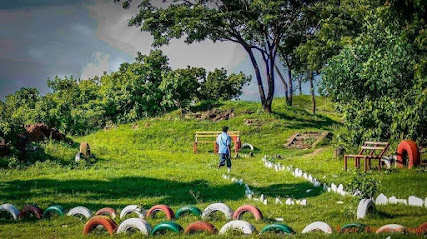
Ancien Tribunal de Mamoudzou
Discover the Ancien Tribunal de Mamoudzou, a cultural gem in Mayotte that showcases the island's rich history and vibrant local art scene.
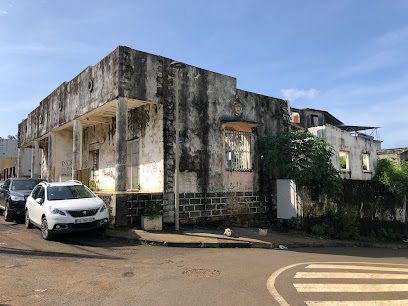
Unmissable attractions to see
Dziani Dzaha
Discover Dziani Dzaha, a stunning lake in Mayotte, perfect for relaxation, adventure, and enjoying nature's beauty in tranquility.
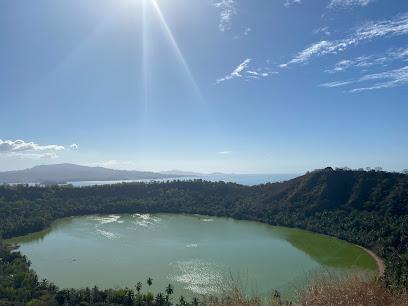
Maison du Gouverneur
Explore the historical allure of Maison du Gouverneur, a must-see tourist attraction in Dzaoudzi, Mayotte, showcasing colonial architecture and stunning gardens.

Point de vue
Experience the natural beauty of Mayotte at Point de Vue, a must-see viewpoint offering stunning landscapes and tranquil vibes.
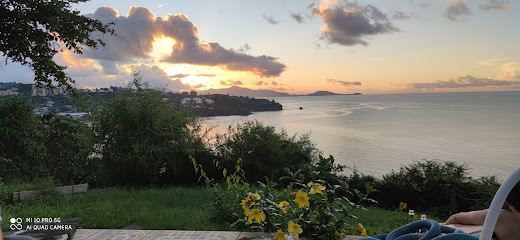
Cascade de Majimbini
Discover the breathtaking beauty of Cascade de Majimbini, a hidden waterfall gem in Mayotte, perfect for nature lovers and adventure seekers.
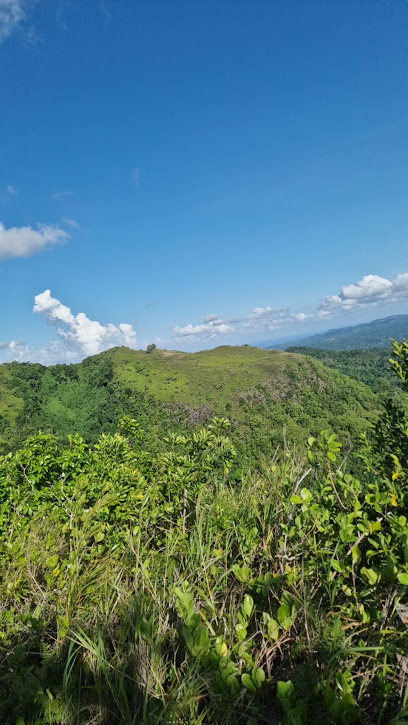
Essential places to dine
Hippocampe Restaurant
Experience authentic Mayotte cuisine at Hippocampe Restaurant in Mamoudzou—where every dish tells a story.
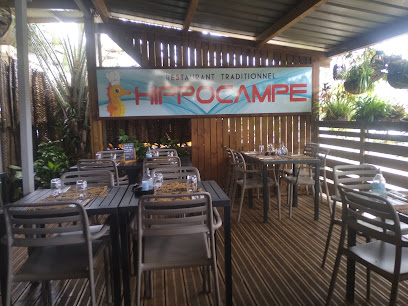
Crêperie La Bigoudene
Experience authentic French crêpes in Mamoudzou at Crêperie La Bigoudene – a must-visit culinary destination blending tradition with local charm.
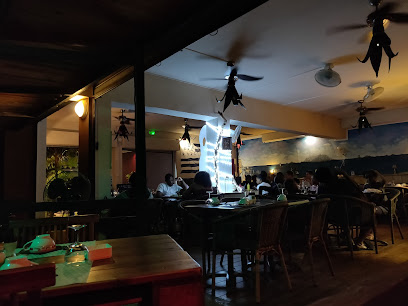
Auberge du Rond-point
Discover authentic flavors at Auberge du Rond-point in Mamoudzou, where local ingredients meet exquisite culinary artistry.
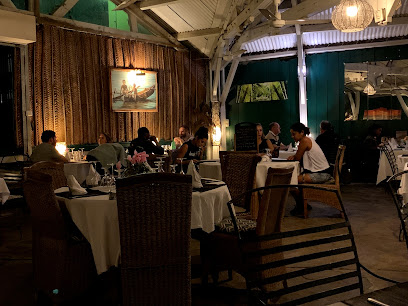
Chez Cousin
Experience the vibrant flavors of Mayotte at Chez Cousin, where delicious fast food meets local culture in a casual setting.
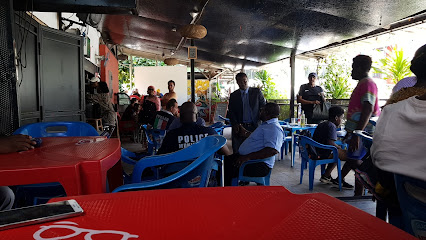
L’Orient Express
Discover authentic Mayotte cuisine at L’Orient Express – a delightful restaurant offering fresh local dishes and warm hospitality.
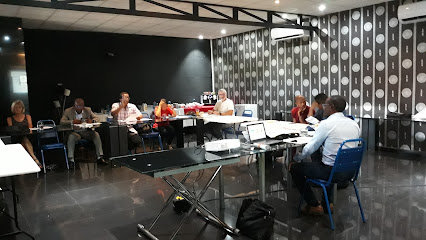
Le Voulé
Discover the vibrant flavors and lively atmosphere at Le Voulé in Mamoudzou - where every meal is an experience!
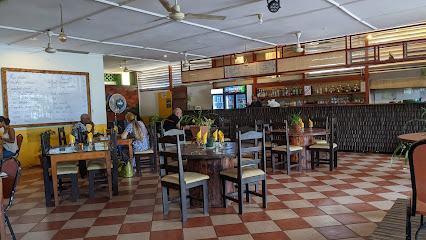
La Table du Sénat
Experience authentic French cuisine in Mamoudzou's charming eatery, La Table du Sénat - where tradition meets taste.
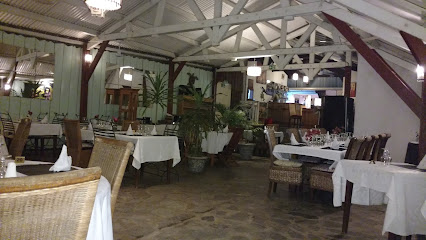
Le Zen Eat
Experience the vibrant flavors of Mayotte at Le Zen Eat, where local cuisine meets warm hospitality in a charming setting.
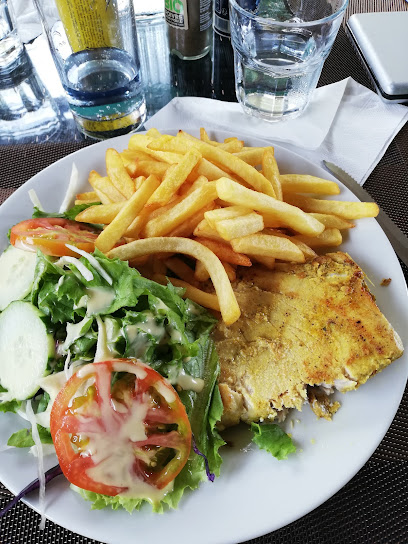
La Téranga
Discover La Téranga in Mamoudzou: A culinary journey through Mayotte's vibrant flavors in an inviting atmosphere.
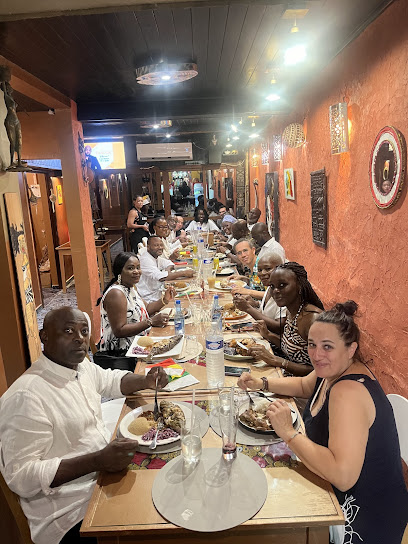
Délices d’Ashi
Experience the rich flavors of China at Délices d’Ashi – your go-to spot for authentic Chinese cuisine in Kawéni, Mayotte.
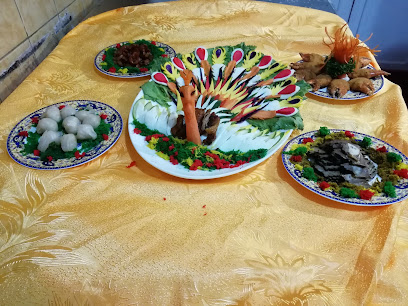
Le Kamcham
Experience authentic Mayotte cuisine at Le Kamcham – where fresh ingredients meet warm hospitality in Mamoudzou.
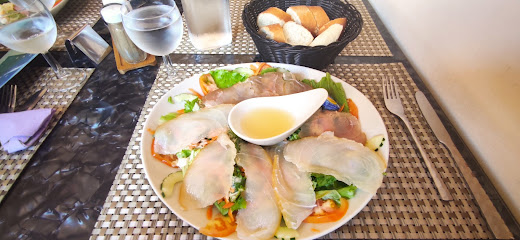
Restaurant Réunionnais Le Maloya
Discover authentic Creole cuisine at Restaurant Réunionnais Le Maloya in Mamoudzou, where every dish tells a story of Mayotte's rich heritage.
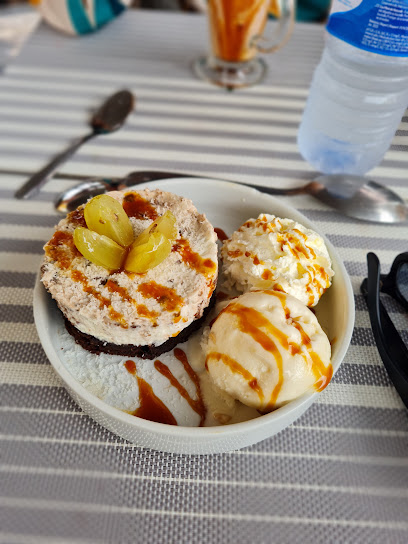
MAMA PIZZA 2
Discover authentic Italian flavors at Mama Pizza 2 in Majicavo - a delightful pizza haven for travelers seeking delicious meals.
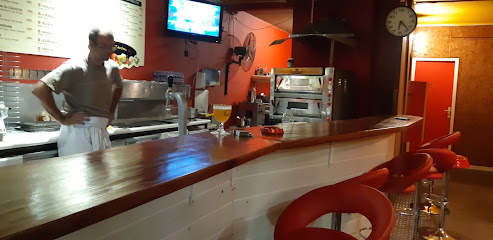
Bon Coin Italiano
Experience authentic Italian cuisine at Bon Coin Italiano in Mamoudzou - where every meal is a celebration of flavor.
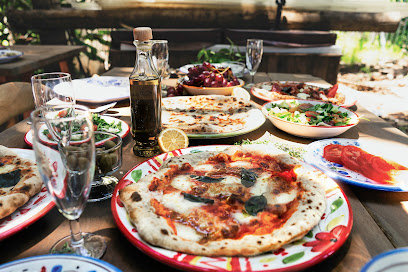
May’Food
Experience the authentic tastes of Mayotte at May'Food - a delightful restaurant offering local cuisine in Mamoudzou.
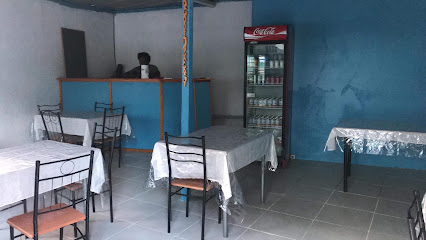
Markets, malls and hidden boutiques
Centre Commercial Baobab
Explore the vibrant Centre Commercial Baobab in Mamoudzou, a shopping haven offering local crafts, delicious cuisine, and a taste of Mayotte's culture.
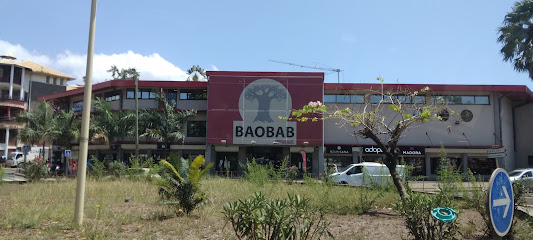
Boutique Orange Kaweni - Mamoudzou - Mayotte
Explore Mamoudzou's Boutique Orange Kaweni for all your telecommunications needs while enjoying the beauty of Mayotte.
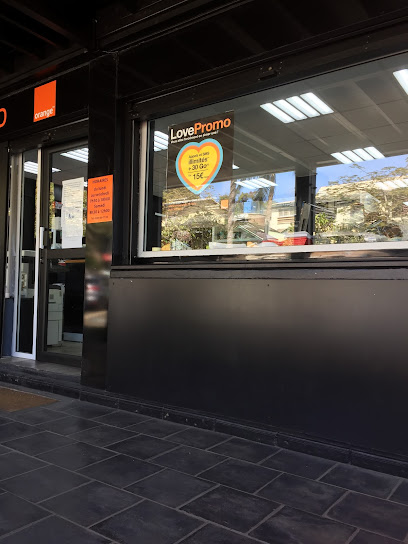
Diam Mayotte
Explore Diam Mayotte, a vibrant variety store in Mamoudzou, where local culture meets everyday essentials in a colorful shopping experience.
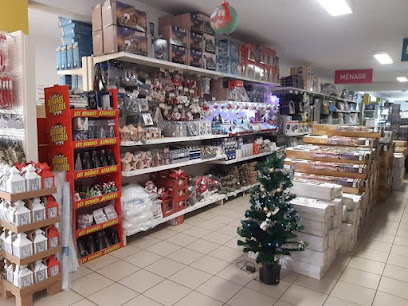
Boutique Orange
Discover the latest electronics and gadgets at Boutique Orange in Mamoudzou, Mayotte, where technology meets exceptional customer service.
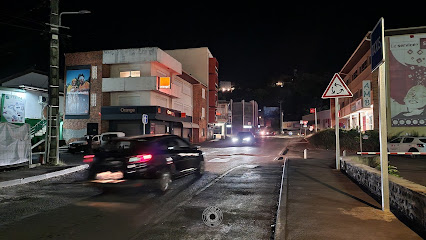
Zak Boutik
Explore unique fashion at Zak Boutik, Mamoudzou's premier clothing store, a blend of local culture and contemporary style.
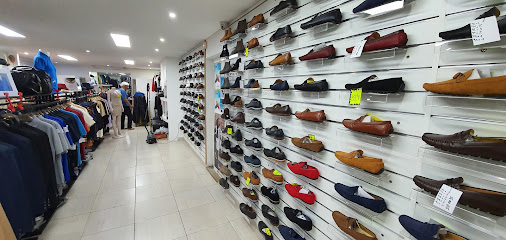
Mayotte Island Fashion
Discover the fusion of local culture and contemporary style at Mayotte Island Fashion, a premier shopping destination on the beautiful Mayotte Island.
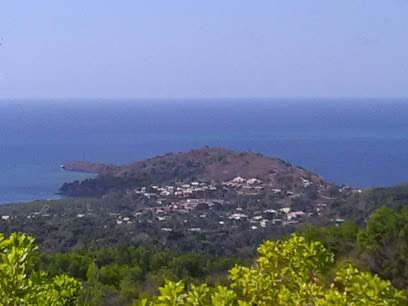
Madora Mayotte
Experience the enchanting scents and beauty of Mayotte at Madora, your go-to perfume and cosmetics store in Mamoudzou.
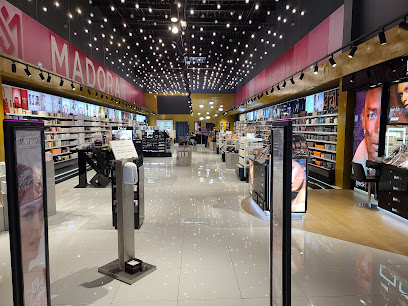
Douka Bé Koungou
Discover the vibrant flavors of Mayotte at Douka Bé Koungou, your go-to supermarket for local delicacies and everyday essentials.
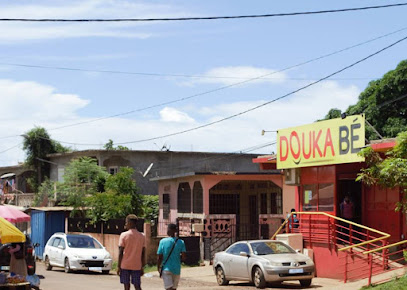
Baobab Company
Explore the essence of Mayotte at Baobab Company, where unique clothing and authentic gift baskets await every traveler.
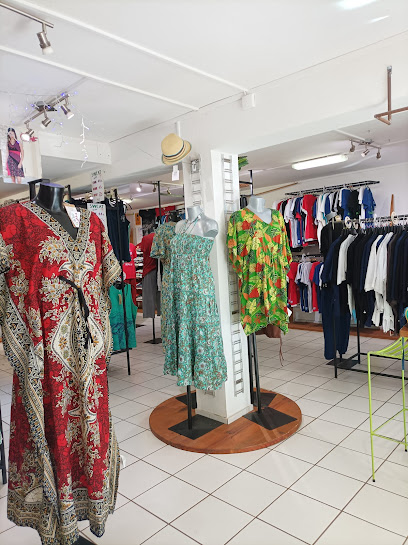
Lila Dressing
Explore Lila Dressing in Mamoudzou for stylish women's clothing that captures the essence of Mayotte's culture and fashion.
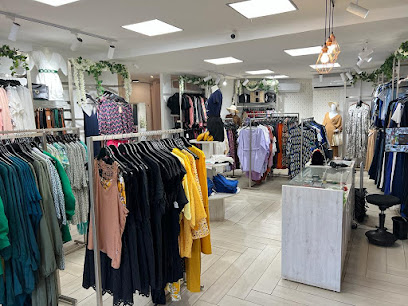
Boulangerie Anfiat
Experience the rich flavors of Mayotte at Boulangerie Anfiat, a charming bakery offering freshly baked breads and pastries to delight your taste buds.
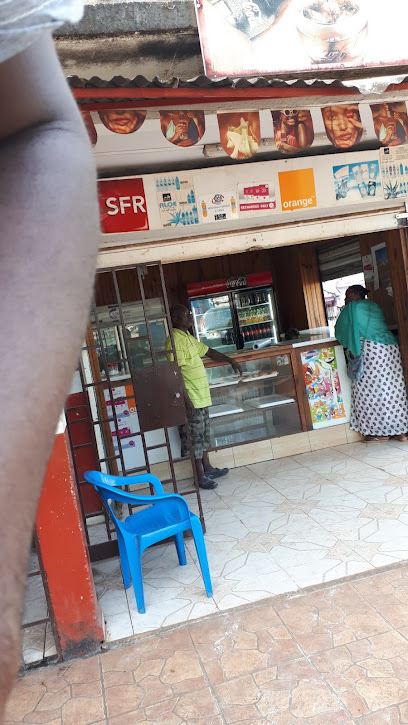
Jeleo boutique
Explore the vibrant Jeleo Boutique in Chirongui, Mayotte, for unique clothing, leather goods, and delightful party supplies.
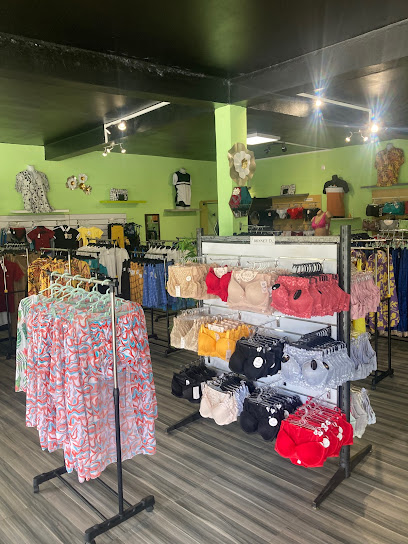
JENNYFER Mayotte
Discover stylish women's clothing at JENNYFER Mayotte, where local fashion meets contemporary trends in a vibrant shopping experience.
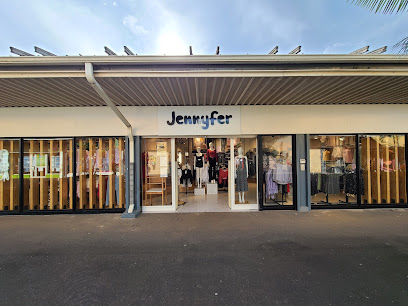
Benson & Cherry
Discover stylish men's fashion at Benson & Cherry, located in the vibrant Centre Commercial Carrefour of Mamoudzou, Mayotte.
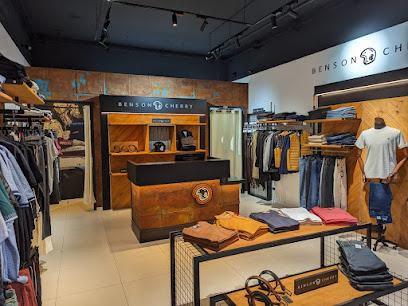
CELIO MAYOTTE
Explore CELIO MAYOTTE for the latest men's fashion and style, blending comfort with contemporary trends in the heart of Mamoudzou.
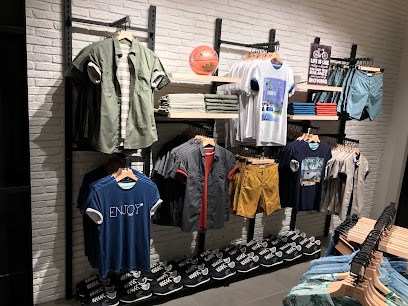
Essential bars & hidden hideouts
Le Camion Blanc
Experience the vibrant nightlife at Le Camion Blanc in Mamoudzou, where locals and tourists converge for drinks and entertainment in Mayotte.
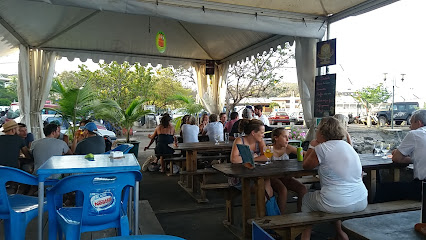
Barakili
Experience the vibrant atmosphere of Barakili in Mamoudzou, where refreshing drinks and local culture come together for an unforgettable night out.
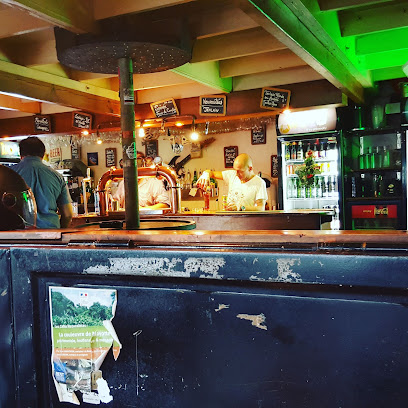
M'biwi
Discover M'biwi, a charming bar in Mamoudzou, Mayotte, where local flavors meet a vibrant atmosphere for an unforgettable experience.
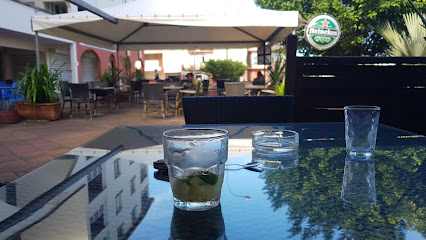
Le Voulé
Discover the culinary and musical delights of Le Voulé in Mamoudzou - a vibrant restaurant and live music venue that captures the spirit of Mayotte.
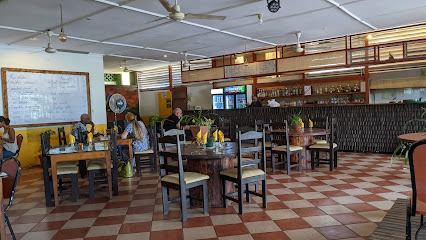
Le Camion Rouge
Discover the lively atmosphere and refreshing drinks at Le Camion Rouge, a must-visit bar in Mamoudzou, Mayotte.
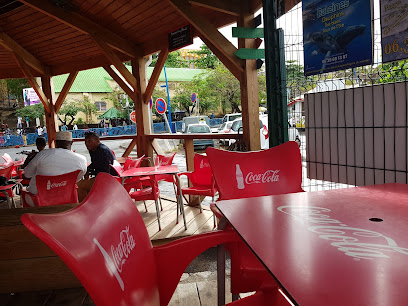
Le Mermoz
Experience vibrant nightlife at Le Mermoz, Mamoudzou's premier bar featuring cocktails, tapas, and a cozy hookah lounge in a tropical setting.
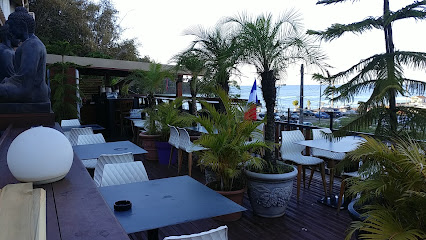
Le Loft
Discover Le Loft in Mayotte, a vibrant bar and nightclub offering an unforgettable nightlife experience with live music, creative cocktails, and a lively atmosphere.
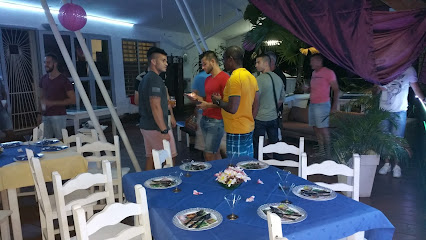
Le Barbu Restaurant
Discover the authentic flavors of Mayotte at Le Barbu Restaurant, where local ingredients meet traditional recipes in a warm setting.
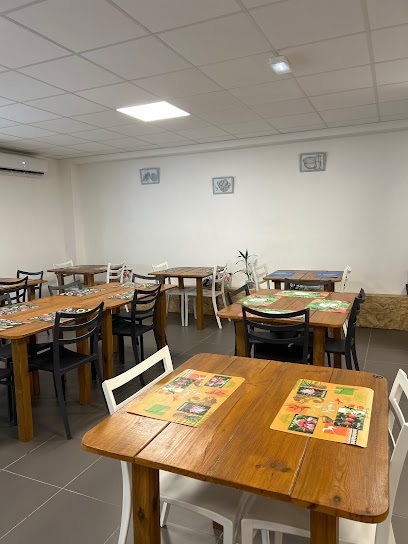
Port de longoni
Experience the flavors of Mayotte at Port de Longoni, where fresh seafood and traditional Creole dishes await in a warm, inviting atmosphere.
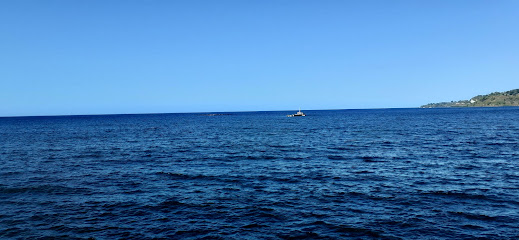
Restaurant Tonton roosko
Experience authentic Mayotte cuisine at Restaurant Tonton Roosko, where fresh ingredients and local flavors come together in a warm, inviting atmosphere.

Le rapido
Discover the vibrant flavors of Le Rapido, a local pizza haven in Koungou, Mayotte, where delicious dishes and warm ambiance unite.
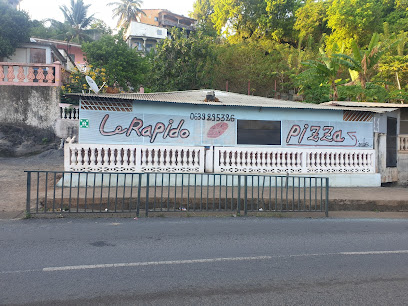
Knet
Discover the vibrant Knet Bar in Mamoudzou, where refreshing drinks and lively atmosphere create the perfect spot for relaxation and socializing.

Tdz2
Discover the lively Tdz2 Pub in Mamoudzou, a must-visit spot for tourists seeking local flavors and a vibrant social atmosphere.
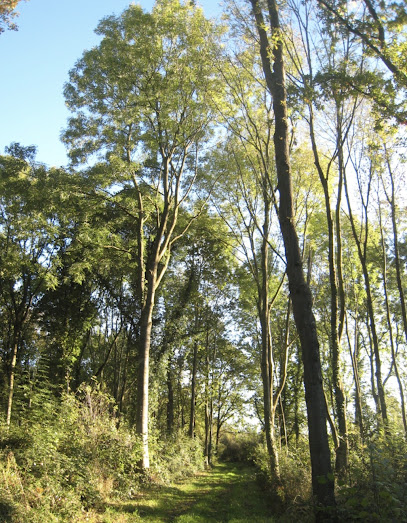
Déjeuner pas cher
Discover the vibrant atmosphere of Déjeuner pas cher, a local bar in Bandraboua, Mayotte, perfect for relaxing with friends and enjoying the island's charm.
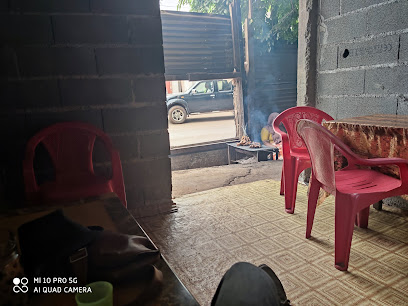
Local Phrases
-
- HelloSalama
[sa-la-ma] - GoodbyeKwaheri
[kwa-he-ri] - YesEwe
[e-we] - NoHapana
[ha-pa-na] - Please/You're welcomeTafadhali
[ta-fa-dha-li] - Thank youAsante
[a-san-te] - Excuse me/SorrySamahani
[sa-ma-ha-ni] - How are you?U hali gani?
[u ha-li ga-ni] - Fine. And you?Salama. Na wewe?
[sa-la-ma. na we-we] - Do you speak English?Unazungumza Kiingereza?
[u-na-zun-gum-za king-ge-re-za] - I don't understandSiwezi kuelewa
[si-we-zi ku-e-le-wa]
- HelloSalama
-
- I'd like to see the menu, pleaseNingependa kuona menyu, tafadhali
[ni-nge-pen-da ku-o-na me-nyu, ta-fa-dha-li] - I don't eat meatSili nyama
[si-li nya-ma] - Cheers!Afya!
[af-ya] - I would like to pay, pleaseNingependa kulipa, tafadhali
[ni-nge-pen-da ku-li-pa, ta-fa-dha-li]
- I'd like to see the menu, pleaseNingependa kuona menyu, tafadhali
-
- Help!Msaada!
[m-saa-da] - Go away!Nenda zako!
[nen-da za-ko] - Call the Police!Piga polisi!
[pi-ga po-li-si] - Call a doctor!Piga daktari!
[pi-ga dak-ta-ri] - I'm lostNimepotea
[ni-me-po-te-a] - I'm illNinaumwa
[ni-na-um-wa]
- Help!Msaada!
-
- I'd like to buy...Ningependa kununua...
[ni-nge-pen-da ku-nu-nu-a] - I'm just lookingNinaangalia tu
[ni-na-an-ga-li-a tu] - How much is it?Ni bei gani?
[ni bei ga-ni] - That's too expensiveHiyo ni ghali sana
[hi-yo ni gha-li sa-na] - Can you lower the price?Unaweza kupunguza bei?
[u-na-we-za ku-pun-gu-za bei]
- I'd like to buy...Ningependa kununua...
-
- What time is it?Saa ngapi?
[sa-a nga-pi] - It's one o'clockNi saa moja
[ni sa-a mo-ja] - Half past (10)Saa moja na nusu
[sa-a mo-ja na nu-su] - MorningAsubuhi
[a-su-bu-hi] - AfternoonMchana
[m-cha-na] - EveningJioni
[jo-ni] - YesterdayJana
[ja-na] - TodayLeo
[le-o] - TomorrowKesho
[ke-sho] - 1Moja
[mo-ja] - 2Mbili
[m-bi-li] - 3Tatu
[ta-tu] - 4Nne
[n-ne] - 5Tano
[ta-no] - 6Sita
[si-ta] - 7Saba
[sa-ba] - 8Nane
[na-ne] - 9Tisa
[ti-sa] - 10Kumi
[ku-mi]
- What time is it?Saa ngapi?
-
- Where's a/the...?Iko wapi...?
[i-ko wa-pi] - What's the address?Anwani ni ipi?
[an-wa-ni ni i-pi] - Can you show me (on the map)?Unaweza kunionyesha (kwenye ramani)?
[u-na-we-za ku-ni-o-nye-sha (kwe-ne ra-ma-ni)] - When's the next (bus)?Basi la pili litapita saa ngapi?
[ba-si la pi-li li-ta-pi-ta sa-a nga-pi] - A ticket (to ....)Tiketi (kwenda ....)
[ti-ke-ti (kwen-da)]
- Where's a/the...?Iko wapi...?
History of Koungou
-
Koungou, like much of Mayotte, has been settled for thousands of years. The earliest inhabitants were likely the Maore people, who are part of the larger Swahili cultural and linguistic group. These early settlers brought with them a rich tradition of oral history, music, and dance, which continue to influence the local culture today.
-
From the 9th century onwards, Arab traders and Shirazi settlers from Persia began to arrive on the islands. They brought Islam, which remains the dominant religion in Mayotte, and established trade routes that connected Mayotte to the broader Indian Ocean world. Koungou, with its strategic location, became an important port during this period.
-
In the 19th century, Mayotte, including Koungou, came under French control. The French colonial administration established plantations and introduced new agricultural practices. The colonial period also saw the construction of roads, schools, and hospitals, which significantly altered the social and economic fabric of the island.
-
After World War II, Mayotte, including Koungou, experienced significant political changes. In 1974 and 1976, referendums were held in which the people of Mayotte voted to remain part of France rather than joining the newly independent Comoros. This decision has had lasting implications for the island's political status and development trajectory.
-
Today, Koungou is a vibrant community that reflects the diverse influences that have shaped its history. The town is known for its bustling markets, where visitors can find everything from fresh produce to traditional crafts. Koungou is also home to several important cultural sites, including mosques that date back to the Shirazi period and colonial-era buildings that offer a glimpse into the island's past.
Koungou Essentials
-
Koungou is located on the island of Mayotte, a French overseas department in the Indian Ocean. The primary gateway to Mayotte is Dzaoudzi–Pamandzi International Airport (DZA), located on the nearby island of Petite-Terre. From the airport, you can take a taxi or a ferry to reach Koungou. The ferry between Petite-Terre and Grande-Terre (where Koungou is situated) operates frequently and takes about 10-15 minutes. Alternatively, you can rent a car at the airport for greater flexibility.
-
In Koungou, the main forms of transportation are taxis and car rentals. Public transportation is limited, but you can find shared taxis (bush taxis) that connect various parts of the island. These shared taxis are an economical way to travel but may not always run on a fixed schedule. Renting a car is a convenient option for exploring Koungou and the surrounding areas at your own pace. Be mindful that road conditions can vary, so driving carefully is advisable.
-
The official currency in Mayotte is the Euro (EUR). Credit cards are accepted in most hotels, restaurants, and larger shops. However, it's a good idea to carry some cash, especially when visiting smaller establishments or local markets. ATMs are available in Koungou, but it's wise to withdraw enough cash when you have the opportunity, as ATMs can occasionally be out of service.
-
Koungou is generally safe for tourists, but as with any destination, it's important to stay vigilant. Avoid walking alone at night in unfamiliar areas and keep an eye on your belongings in crowded places. Some neighborhoods in Koungou have higher crime rates, particularly for petty thefts targeting tourists. It's advisable to avoid these areas, especially after dark. Always use reputable transportation services and stay in well-lit, populated areas.
-
In case of emergency, dial 112 for immediate assistance, which is the emergency number for police, fire, and medical services. The nearest hospital is the Centre Hospitalier de Mayotte in Mamoudzou, which is well-equipped to handle medical emergencies. For minor health issues, pharmacies are available in Koungou where you can purchase over-the-counter medications. It's recommended to have travel insurance that covers medical emergencies.
-
Fashion: Do dress modestly, especially when visiting religious sites or local villages. Avoid wearing revealing clothing. Religion: Do respect local customs and traditions. Mayotte has a predominantly Muslim population, so be mindful of cultural sensitivities. Public Transport: Do be respectful and patient when using shared taxis. Don't eat or drink on public transport. Greetings: Do greet people with a polite 'Bonjour' (Hello) and a handshake. Eating & Drinking: Do try local delicacies and accept food offerings graciously. Don't refuse hospitality, as it is considered impolite.
-
To experience Koungou like a local, visit the local markets where you can buy fresh produce and traditional goods. Engage with the locals, as they are often friendly and willing to share stories about their culture and heritage. Don't miss the chance to explore the beautiful beaches and natural reserves around Koungou. For a unique experience, participate in a traditional fishing trip with local fishermen or attend a cultural festival to witness local music and dance.
Trending Landmark in Koungou
Nearby Cities to Koungou
-
Things To Do in Mamoudzou
-
Things To Do in Dembeni
-
Things To Do in Chiconi
-
Things To Do in Acoua
-
Things To Do in Sada
-
Things To Do in Bandrele
-
Things To Do in Chirongui
-
Things To Do in Domoni
-
Things To Do in Ouani
-
Things To Do in Iconi
-
Things To Do in Moroni
-
Things To Do in Nosy Be
-
Things To Do in Mahajanga
-
Things To Do in Majunga
-
Things To Do in Antsiranana







